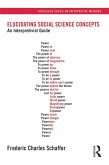The authors find their subject matter in interpersonal relations, not abstract institutions or organizations, and their analysis of power is related to human values. They argue that revolution is a part of the political process, and ideology has a role in political affairs. The importance of class, both as social fact and social symbol, is reflected in their detailed analysis, and emphasis on merit rather than rank, skill rather than status, as keystones of democratic rule.
The authors note that power is only one of the values and instruments manifested in interpersonal relations; it cannot be understood in abstraction from other values. Lasswell and Kaplan call for the replacement of "power politics," both in theory and in practice, by a conception in which attention is focused on the human consequences of power as the major concern of both political thought and political action. The basic discussions of core concepts in political science make Power and Society of continuing importance to scholars, government officials, and politicians.
Dieser Download kann aus rechtlichen Gründen nur mit Rechnungsadresse in A, B, BG, CY, CZ, D, DK, EW, E, FIN, F, GR, HR, H, IRL, I, LT, L, LR, M, NL, PL, P, R, S, SLO, SK ausgeliefert werden.









